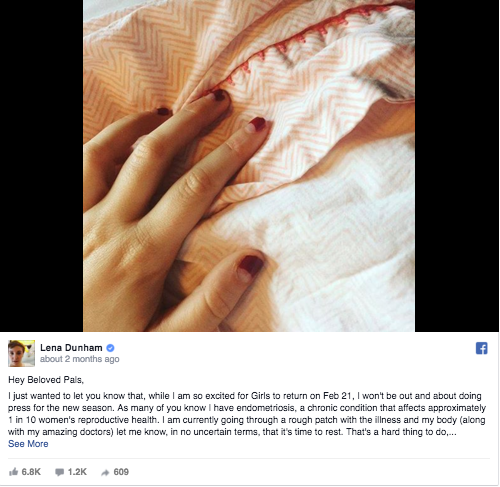Padma Lakshmi Opens up About Endometriosis

By:
Many women suffer in silence from endometriosis, a painful uterine disorder. Padma Lakshmi, host of Bravo's Top Chef, opened up on Thursday about her lifelong struggle with the disorder at Tina Brown's Women in the World Summit, New York Magazine reported.
Endometriosis causes the endometrium tissue lining the uterus to grow outside of it and become trapped, which causes severe pain during a woman's period and can contribute to fertility problems.
Lakshmi wasn't diagnosed with endometriosis until she was 36. She described her life until that point:
“For 23 years of my life, for one week of my life, I was bedridden with heating pads and very serious prescription pain medication. I tried all kinds of things, and no one could tell me what was wrong. I don't want any other little teenage girl to miss an exam, to not be able to go to volleyball practice, to not do all of the things that [make them] feel fulfilled and their best self."
Many women who suffer from endometriosis don't get help because of the way female pain is stigmatized and often not taken seriously.
“Pain is your body’s way of telling you something is wrong,” Lakshmi explained. “It is not okay for you to be bedridden for two or three or four or five days every month because of the fact that you’re a woman or the fact that you have a period. That is abnormal. And I and millions of other women are conditioned to think that it’s just a part of being a woman, and it’s really not.”
In her autobiography, Lakshmi opened up about how the disorder impacted her marriage with author Salman Rushdie. The New York Times reported:
"The struggles of dealing with it — she had extensive surgery — upended their sex life and contributed to the demise of their marriage, she writes. Ms. Lakshmi said Mr. Rushdie at one point called her “a bad investment” and was insensitive to her medical condition even as she tried to recuperate.
She wrote that he believed she was using her ailment to justify not having sex with him.
Eventually, the tension led to a divorce, according to The Times. "I was free to wallow in my malaise, and nurse myself without seeing the disappointment in his face,” the model and reality television star wrote.
Endometriosis affects 5 million women in the U.S. and 176 million women around the world.
As ATTN: has previously reported, many women who live with endometriosis aren't diagnosed.
“Endometriosis can sometimes be difficult to diagnose because the symptoms can vary from person to person,” Jennifer Wider, MD, told Yahoo Health. “The symptoms can also be vague and mimic other conditions.”
Sexism also shapes how they are treated, and doctors often dismiss their pain or tell them they have imagined it. According to a 2008 study, women with the same levels of abdominal pain as men were 13 percent less likely to receive Opioid analgesia and waited 13 minutes longer to be treated. One woman told BuzzFeed, "my doctor believed that I was lying about the pain for years just to get drugs.”
Lena Dunham also opened up about the condition in Lenny Letter. She wrote:
"If my pain had no tangible source, that just meant my mind was more powerful than I was and it didn't want me to be happy, ever. I saw myself divided like a black-and-white cookie into neat halves: one bright and ambitious, the other destined to wind up strapped to a gurney and moaning for pain meds. I had lost all trust in or connection to my own body."
In February, Dunham announced that she was taking a break from promoting her television show "Girls" to give herself time to rest and recover.
 Facebook/Lena Dunham - facebook.com
Facebook/Lena Dunham - facebook.com
Though the disease can be extremely painful, it is treatable. Hormonal birth control can help alleviate the symptoms, though the disorder is not curable, and some of the most severe cases require a hysterectomy, CNN reported.
This story, first published on April 8, was updated on April 10 to correct that only some of the most severe cases of endometriosis require a hysterectomy.
